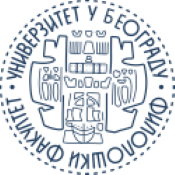Latin American Counter-Translations and Collective Readings in Island-Brazil
DOI:
https://doi.org/10.18485/beoiber.2021.5.1.5Abstract
In this text, contributing with a possible inspiration for the didactics of Hispanic studies in the world, I present a form of work that we are accomplishing in the countryside of Brazil, in a city called Tangará da Serra, located in the State of Mato Grosso – a border state with Bolivia. As we have previously studied (Krauss 2016) the literary-editorial work carried out by the Cartonera Publishers – collectives that manufacture books with cardboard covers and that have gained more and more literary expression in Latin America – we understand that their catalog is a privileged gateway for a linguistic and literary work that strives to be counter-hegemonic (Palmeiro 2010, Navarro 2020). For this reason, I contacted a Bolivian Cartonera Publisher and proposed to coordinate a group of students willing to translate some of their titles for later publication in Brazil. When I realized that the students were engaged in the translation process, but did not relate much to each other, I made a proposal of a work of collective reading of the works that are being translated. Therefore, we meet weekly on the Google Meet platform to talk about the work we are reading. From an interpretative analysis of the meetings themselves and also from individual interviews conducted with all student-translators, I notice that this is a sort of dynamic that has produced positive effects for the relationship that Spanish-speaking students establish so much with the Spanish language and its literature, but, above all, that this is a circuit of work that has contributed to the deconstruction of a certain imaginary that surrounds our Bolivian neighbors disparagingly. Thus, from this data, we concluded that this is a practice which has helped a lot for the improvement of the word reading that offers itself as a support to improve the reading of the world of the students.References
Arendt, Hannah. «A Crise na Educação.» Entre o Passado e o Futuro. 7.ed. São Paulo: Perspectiva, 2011. Impresso.
BRASIL. Lei Nº. 11.161, de 05 de agosto de 2005. Dispõe sobre o ensino da língua espanhola. Diário Oficial da União, Brasília, DF. Impresso.
Celada, María Teresa. «Entremeio español / portugués – errar, deseo, devenir.» Caracol 1 (2010): 110–150. Impresso.
Conceição, Mariele. Representações sobre o processo de ensino/aprendizagem da língua espanhola em contexto de fronteira – Cáceres/MT. Trabalho de Conclusão de Curso. Mato Grosso: Universidade do Estado do Mato Grosso, Campus Tangará de Serra, 2019. Web. 26 abr. 2021.
González, Magdalena. Ayni. Antología del cuento boliviano contemporáneo. Córdoba: La Sofía Cartonera, 2013. Impreso.
Krauss, Flavia. «O Acontecimento Eloísa Cartonera: memória e identificações.»Tese de doutorado. São Paulo: Faculdade de Filosofia, Letras e Ciências Humanas/Universidade de São Paulo, 2016. Impresso.
Lacan, Jacques. O seminário. Livro 4: a relação de objeto (1956–1957). Texto estabelecido por Jacques Alain Miller. Rio de Janeiro: Jorge Zahar, 1995. Impresso.
—. O Seminário. Livro 20: mais ainda (1972–1973). Texto estabelecido por Jacques Alain Miller. 3. ed. Rio de Janeiro: Jorge Zahar, 2008. Impresso.
Larrosa, Jorge. Tremores: escritos sobre experiência. Belo Horizonte: Autêntica Editora, 2018. Impresso.
Lopes, Rodrigo Smaha, et al. «Métodos/abordagens no ensino de línguas em uma sociedade multiletrada.» Tabuleiro de Letras 11.2 (2017): 196–208. Web. 26 abr. 2021.
Lleras, Jordi, y Marta Soler Gallart. «Las tertúlias literárias dialógicas: compartiendo lectura y cultura.» Saberes (Inverno 2003): 24–28. Web. 15 fev. 2021.
Mauss, Marcel. «Ensaio sobre a dádiva. Forma e razão da troca nas sociedades arcaicas.» Sociologia e Antropologia. v. II. São Paulo: Edusp, 1974. Impresso.
Melman, Charles. Imigrantes: incidências subjetivas das mudanças de língua e país. São Paulo: Escuta, 1992. Impresso.
Navarro, Letícia. «La lengua de las locas: um pequeno recorte sobre o catálogo de Eloísa Cartonera.» Trabalho de Conclusão de Curso. Mato Grosso: Universidade do Estado do Mato Grosso, Campus Tangará de Serra, 2020. Impresso.
Palmeiro, Cecilia. Desbunde y felicidad: de la Cartonera a Perlongher. Buenos Aires: Título, 2010. Impreso.
Pêcheux, Michel. Discurso: Estrutura ou Acontecimento. Campinas: Pontes, 1983. Impresso.
Rodrigues, Fernanda. Língua Viva, Letra Morta: obrigatoriedade e ensino de espanhol no arquivo jurídico e legislativo brasileiro. São Paulo: Humanitas, 2012. Impresso.
Segato, Rita. «Género y colonialidad: en busca de claves de lectura y de un vocabulario estratégico descolonial.» La Cuestión Descolonial. Aníbal Quijano y Julio Mejía Navarrete (eds). Lima: Universidad Ricardo Palma – Cátedra América Latina y la Colonialidad de Poder, 2010. Impreso.
Schaeffer, Zaira. «O uso da tradução como ferramenta de ensino de Língua Estrangeira.» Portal Educação, n.d. Web. 26 abr. 2021.
Tecchio, Iliane, e Marcelina Bittencourt. «A tradução no Ensino-aprendizagem de Línguas Estrangeiras.» Revista Magistro 2.1 (2011): 152–165. Web. 26 abr. 2021.
Yerba Mala Cartonera. «El Crispín.» Yerba Mala Cartonera Blog, julio 22, 2007. Web. 24 nov. 2015.
Downloads
Published
How to Cite
Issue
Section
License
Copyright (c) 2021 Flavia Krauss

This work is licensed under a Creative Commons Attribution-ShareAlike 4.0 International License.
Authors who publish with this journal agree to the following terms:
- Authors retain copyright and grant the journal right of first publication with the work simultaneously licensed under a Creative Commons Attribution-ShareAlike 4.0 International License that allows others to share the work with an acknowledgement of the work's authorship and initial publication in this journal.
- Authors are able to enter into separate, additional contractual arrangements for the non-exclusive distribution of the journal's published version of the work (e.g., post it to an institutional repository or publish it in a book), with an acknowledgement of its initial publication in this journal.
- Authors are permitted and encouraged to post their work online (e.g., in institutional repositories or on their website) prior to and during the submission process, as it can lead to productive exchanges, as well as earlier and greater citation of published work (See The Effect of Open Access).













